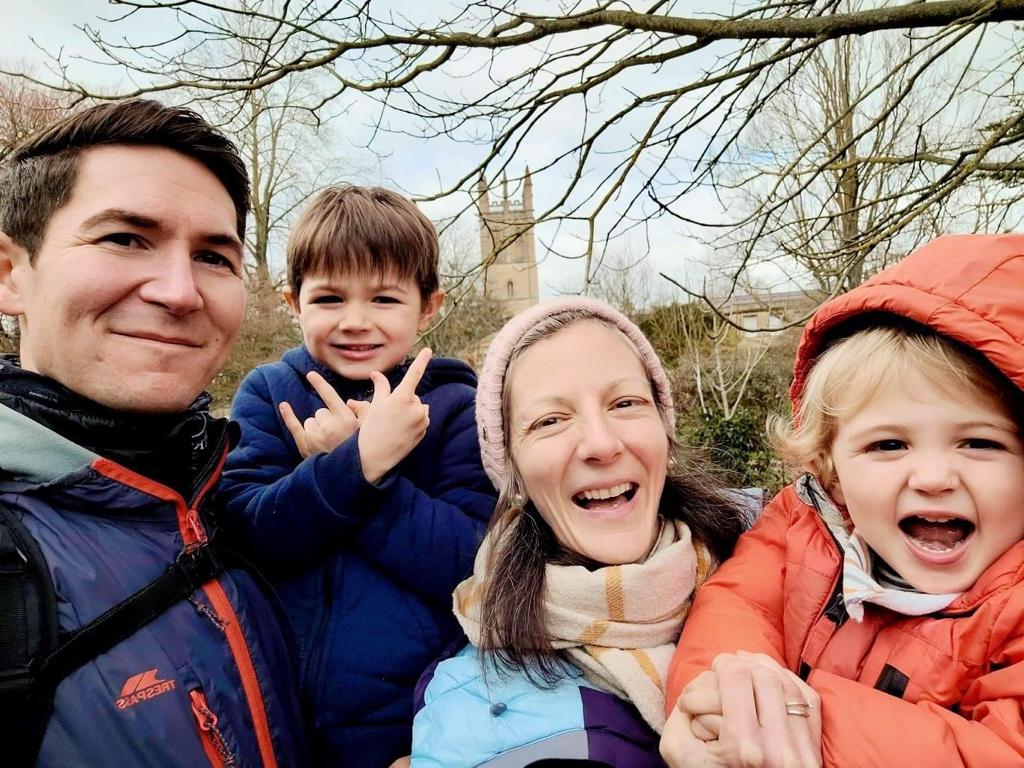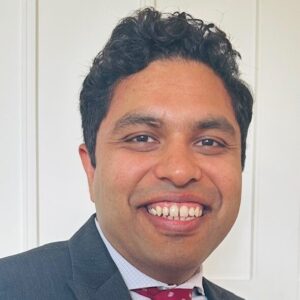
My 2.5-year journey with translocation renal cell carcinoma
April 30, 2024
This is a guest post by Dawn Dyson, 37, who was diagnosed with translocation renal cell carcinoma in 2022. Dawn…
Read More
Dr. Prateek Khanna received a 2023 KCA Translocation RCC Focus Award for research on “Therapeutic targeting of cell surface antigens in translocation renal cell carcinoma.” This award was given in partnership with Joey’s Wings Foundation, a KCA Affiliate Partner. Dr. Khanna is a Hematology/Oncology Fellow at the Dana-Farber Cancer Institute in Boston, Massachusetts. We spoke with Dr. Khanna about his research and the impact it can have on people with kidney cancer.
Can you briefly summarize your research project?
Translocation renal cell carcinoma (tRCC) is a rare but aggressive subtype of kidney cancer that constitutes 50% of pediatric and 5% of adult kidney cancer. tRCC is treated with therapies that were developed and tested for other subtypes of kidney cancer and are usually not very effective in tRCC. In this project, we aim to develop a treatment for tRCC directed against a molecular target unique to cell surface of tRCC. This idea is rooted in previous research done by my mentor – Dr. Srinivas Viswanathan (2022 KCA Trailblazer Award recipient) – who identified a surface molecule expressed uniquely in tRCC cells. I now aim to develop a therapy that engages patients’ own immune T cells to recognize tRCC cancer cells thereby causing immune mediated cancer cell death.
How long did it take to reach the current level of understanding about tRCC? Where does the field go from here?
tRCC is a rare subtype of kidney cancer that was first classified by the WHO as a unique subtype of RCC in 2004. Since then, we have discovered that the biology of tRCC is driven by chromosomal translocations unique to this type of kidney cancer. However, we need to understand in more detail how these chromosomal abnormalities contribute to malignant biology of tRCC and identify potential drug targets. In the meantime, a cell surface-based therapy holds promise since these therapies are based on immune cell biology and have been shown to be beneficial in other cancer types.
How has Dr. Viswanathan’s KCA-funded work influenced your own?
Dr. Viswanathan’s KCA-funded work built the foundation for my research. He identified a potential cell surface target in tRCC and initiated the process to validate this target in adult patients. He showed in preliminary experiments that targeting this cell surface molecule leads to cancer cell death. I plan to develop a drug treatment that targets this cell surface molecule. Moreover, I plan to validate this treatment approach in pediatric patients as well.
How does funding on this scale, especially as a second generation KCA grant recipient, impact your trajectory?
Funding on this scale is a significant grant support for early career investigators such as me. As a second generation KCA grant recipient, I am building on science that was previously supported by KCA. Therefore, the impact of KCA grants on my current project is substantial. I continue to receive strong mentorship from Dr. Viswanathan and this grant helps not only move forward our goal of “Unlocking the Cure” but also helps my professional growth as a physician-scientist.
What about your research do you think should be most exciting to patients and families?
The proposed cell surface therapy holds potential as first targeted treatment specifically for tRCC patients. I’m constantly excited about the potential this project has. If we are successful, the treatment could quickly be brought to clinical trials and help patients. It is also a proof of concept to identify more cell surface targets in tRCC and other kidney subtypes allowing us to develop a depth of targeted therapies for our patients.
What motivates you?
As a physician scientist, I am at the intersection of patient care and lab research. It’s a privilege to be a medical provider and taking care of patients constantly motivates me to understand the fundamental biological processes of cancer that we could exploit to develop new treatments that could help patients live longer and better. I aspire to develop treatments and take them from bench to bed side. I am fortunate to be able to work with a great team of researchers and mentors. The pursuit of science, wellbeing of my patients and my personal cancer stories are the driving forces behind my research endeavors.